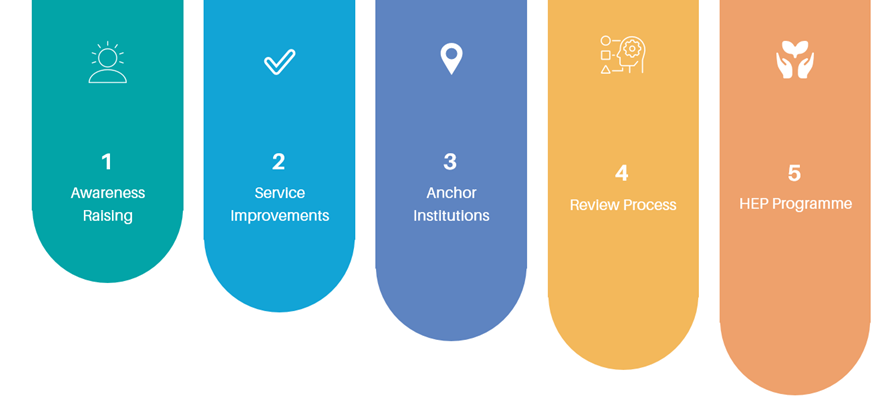Health inequalities are systematic, unfair, and avoidable differences in health across the population and between different groups in society. They are influenced by a range of factors including socioeconomic status, certain protected characteristics, belonging to vulnerable or excluded groups of society, and geography.
Average life expectancy
Difference in life expectancy
Our vision and programme
The Dorset ICS Health Inequalities programme aims to improve access, enhance the experience of services for everyone and seek to improve outcomes thereby reducing health inequalities. Explore our Virtual Academy and Introduction to health literacy pages which contain resources to help tackle health inequalities.


NHS Long-Term Plan
The NHS Long Term Plan placed tackling health inequalities at the heart of NHS goals for this decade. The big population health improvement goals can only be met through far better engagement with those least likely to present at NHS services now.
Furthermore, COVID-19 has shone a harsh light on some of the health and wider inequalities that persist in our society. Guidance issued by NHS England in response to the COVID-19 pandemic, set out eight urgent actions for tackling health inequalities. This was later refined to five key priority areas which underpin the work of the National Healthcare Inequalities Improvement Programme (HiQiP). These include:
-
- restoring NHS services inclusively
- mitigating against digital exclusion
- ensuring datasets are complete and timely
- accelerating preventative programmes
- strengthening leadership and accountability.
It’s important to note that most of the fundamental factors driving inequalities in health are beyond the responsibility of the healthcare system, such as our education system, economic and community development in our most deprived neighbourhoods, employment levels, pay and conditions, and availability and quality of housing. Therefore, a multi-faceted approach that involves various sectors of society is needed to effectively tackle health inequalities.



